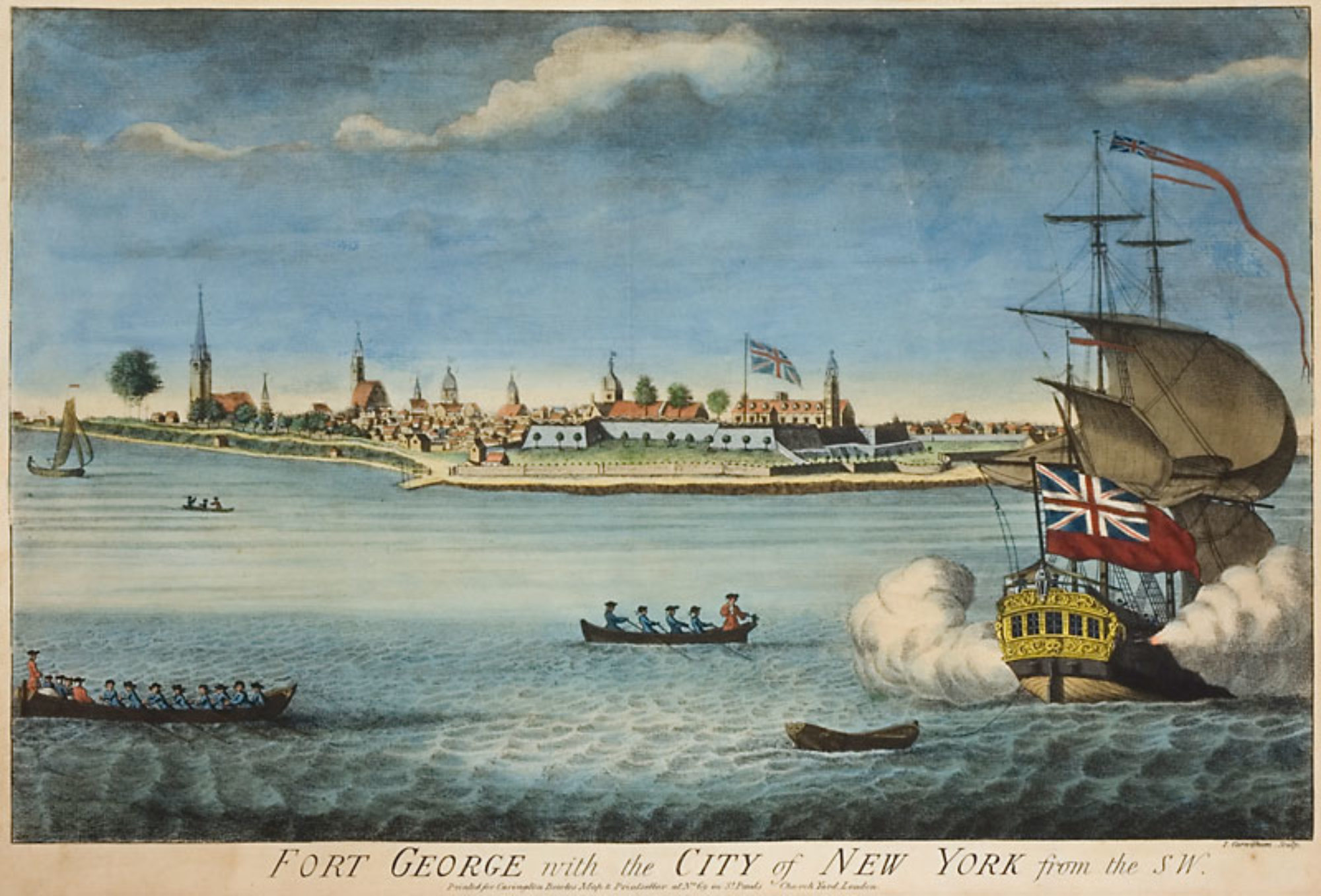At just 24 years old, Lt. William Wilmot of the 3rd Marylanders describes his experience in John Sullivan’s raid of Staten Island at the end of August, 1777.
Major John Stewart was in the rear guard with about 150 Continentals holding off the Loyalist forces, while about 1,000 men (along with plundered items from farms and British prisoners) were attempting to flee Staten Island near Old Blazing Star across the Arthur Kill into New Jersey with only 3 small boats.
Lt. Wilmot jotted down the following description of the battle several weeks later:
“thay came down on us with about 1000 of their herows, and attacked us with about 500 of their new troopes and hesions [Hessians] expecting I believe that thay should not receive one fire from us but to their grate surprise thay received many as we had to spair and had we had as many more thay should have been welcome to them, thay maid two or three attempts to rush on us, but we kept up such a blaze on them, that thay were repulsed every time, and not withstanding we was shure that we must very soon fall into their handes.”
Evidently, Lt. Wilmot was in danger of being captured by the Crown Forces, but surreptitiously slipped through Loyalist hands:
“. . . then I thought it hard times but even in that situation found myself determined never to surrender and could doo nothing else was obleaged to run and strive to conceal myself which I did effectually, in a barn in sum hay which was up in the ruff of the Barnl the reason thay never serched the barn that i was in was that one of their wounded got in the barn immediately after the action. . .

SOURCE: The American Revolution, 1775-1783. Paintings by Jean Leffel, based upon illustrations of H. A. Ogden and Lt. Charles M. Lefferts. Photolithos printed Zurich, Switzerland. Historical descriptions by Harry W. Barker, Jr.
I laying on the hay where I suffered much for want of water and devotedly praying for the dark shades of knight to appear that i might convay myself safe to the River shore, but to my greate surprise i found that the howr that i prayed for, brought with it to my door a band of my most inviterate enemies, as a guarde to that part of the Iland to pick up, what of the free born sons of liberty thay might finde trying to make their escape from that horrid hole.”
“I finding the knight fair spent was determined at last to try as I had done before, and if thay sholde see me before i got of the joists to jump down amongst them and run out by them if i could. Hearing them all still below, I caim down the wall & seeing them all lay still, walked out of the door, turned the corner as quick as I could, hearing noboddey hail me maid the best of my way down to the river on my hands and knees, which I thought the safest way.”
“Finding no centenal in my way thought it best to return again and get a rail from the barn that I might convay my self safe across the River, which was neer a mile wide, and bring my clothes with me, which i did and got safe the second time to the Shore, whair I intended to strip of my clothes, but before I had got my hunting shurt, wast coat and boddy shirt of, I heard a pattroleling Partie that was close after me. I then ran doun into the water and a soon as i had got a little distance from the Shore strip’d of my clothes and steared for the niest point of woods, on the opesit shore, whare I arrived with the loss of my gun and bayonet, cartuch box on the Iland; and on my passage hat, a linning wast coat shoes and the Silver spoon that I had got on the Iland. I had no knapsack with me or i must have lost it with the others. I was very onwell for sum time after, but thank God i am well at preasent…”

Lt. Wilmot, having luckily escaped to New Jersey, then describes Captain Stewart’s unfortunate surrender to the Crown Forces:
“When we see them running back from our fire there was such a houraw or hussaw from the one end of our little line to the other that thay could hear us quight across the river, but what grieved me after seeing that it was not the lot of many of us to fall and our ammunition being expended, that such brave men were obliged to surrender them selves Prisioners to a dasterley, new band of Murderrers, natives of the land [Loyalists], when our ammunition was all spent Major Sturd [Steward] took a whight hankerchief and stuck it on the point of his Sword, and then ordered the men to retreet whilste he went over to their [the British] ground, and surrendered, for he had never gave them an inch before he found that he had nothing left to keep them of[f] with.”
Lt. Wilmot was promoted to Captain in October of 1777.
The Captain was killed in a British ambush at Johns Island, South Carolina, on 4 November 1782; hence, being the last casualty of the Revolutionary War.
General Sullivan’s Descent Upon The British On Staten Island—The Escape Of William Wilmot.” Maryland Historical Magazine, 6, no.2 (June 1911) p. 141-142
Patrick O’Donnell, Washington’s Immortals, The Untold Story of an Elite Regiment Who Changed the Course of the Revolution (New York: Atlantic Monthly Press, 2016), 137-140


You must be logged in to post a comment.